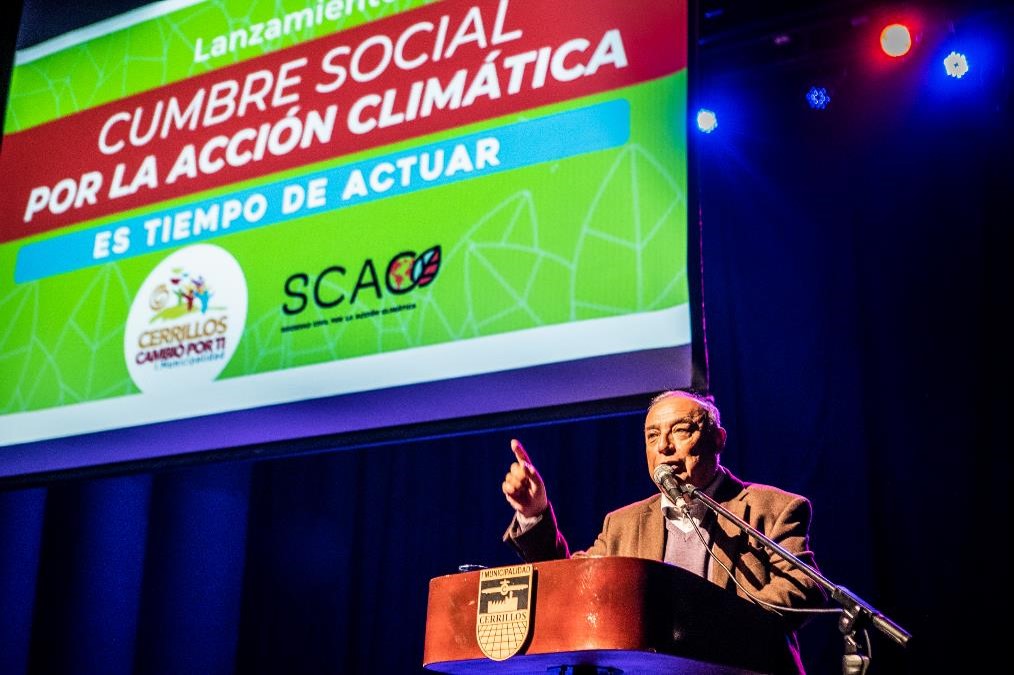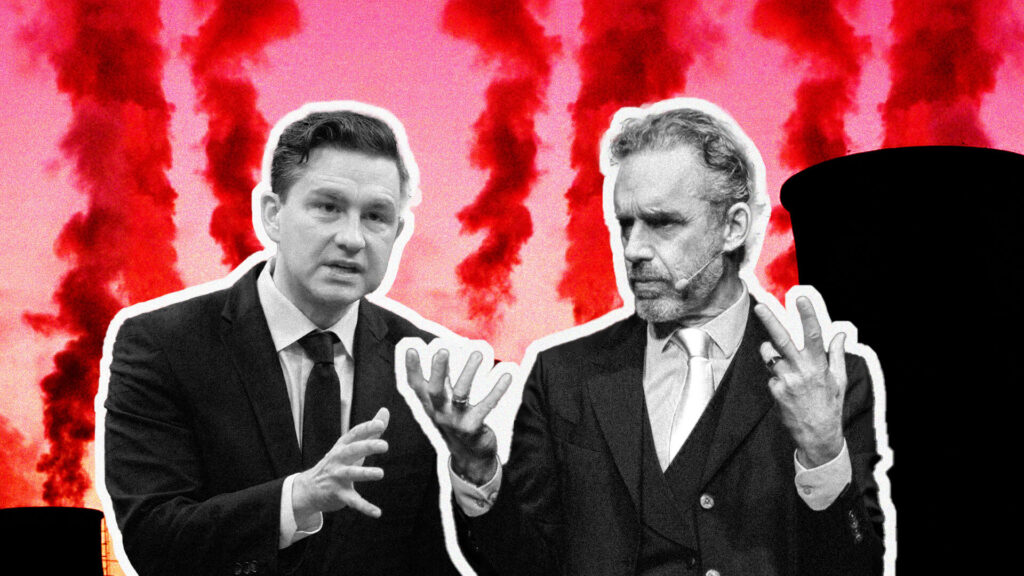Funding arrangements for the upcoming UN climate conference may be in disarray after local reports suggested contributions from the local mining industry to the Chilean authorities were to be slashed.
Chile’s Tele 13 Radio journalist Paula Comondari reported on Wednesday that the national Mining Council’s expected $10 million funding package for the UN’s 25th Conference of the Parties (COP25) was to be slashed to just $2 million. Mining is Chile’s biggest industry and is intensive in terms of its water, energy and associated carbon emissions.
Arturo Aguirre, Mayor of the Los Cerrillos COP event district, was unable to substantiate the details of the leak regarding COP25 funding with Desmog, but confirmed that “support has been less than expected.”
He spoke to DeSmog as he attempted to overcome a stand-off between members of civil society and industrialists by launching a Social Summit for Climate Action conference, to be held parallel to the COP. Civil society groups are angry at the Chilean government for what they see as “exorbitant” costs of participating in the COP, while the country’s major polluters are continuing to lobbying against more stringent climate policy.
Climate Law Lobbying
Chile is currently trying to pass a Climate Change Law that binds them to carbon zero emissions by 2050. The mining bureau have dismissed the scientific validity of the 2050 date as a “self-imposed” target “lacking discussion and substance.” This is in spite of the October 2018 peer reviewed IPCC Special Report that outlined the need for the 2050 target date.
The Chilean Construction Association have also publicly criticised the proposed law citing its mitigation focus as costly and “not a priority for a non-emission relevant country like Chile which contributed approximately 0.25 percent (to global emissions) in 2015.” At COP25, much of the work in ensuring the success of the Paris Agreement will fall to Chile as host nation as they guide negotiations on how low emitting countries can be encouraged to curb emissions as they develop.
With such groups beginning to rail at the close examination COP is bringing to their carbon-intensive operations, journalist Comondari told DeSmog that Chilean industrialists are reluctant to fund what they are describing as “the environmentalists Lollapalooza” – a reference to a global music-festival franchise that visits Chile each March.
Parliamentarian Sebastián Torrelaba, member of the incumbent Chile Vamos coalition and a COP25 Presidential Advisor, told DeSmog that the meeting was open to everyone but that “Chile by its nature is a mining country and that’s not going to change.”
Aguirre told DeSmog that, in climate change terms ,“Chile has still not entered the battlefield. This is not going to be a voluntary process.” Asked whether the Chilean mining industry, which claims green credentials for providing lithium and copper for the electric vehicle revolution, can be considered a green industry, Aguirre pointed to global industry trends stating “sometime wolves disguise themselves as sheep.” In order that citizen’s rights come first, Aguirre added, “it’s now time to take off the masks.”
‘Pay-to-play’ Green Zone
Conflict between Chilean civil society and business was sparked this June in Bonn when the COP25 host’s Environment Minister Carolina Schmidt extended an invitation to both groups promising a “COP of the People.” Yet her proposal to create a pay-to-play “Green Area”, which is present at all COPs, for the meeting where both civic groups and private companies could share their work was fiercely criticised, with Amnesty International describing the fees charged as “exorbitant.”
Many groups remain angry despite the intervention by Chile’s high-level COP25 climate champion Gonzalo Muñoz offering limited free-of-charge space for civil society in the Green Area.
“The 100 metre squared they offered us is a joke,” Amnesty’s Markéta Chárvatová told Desmog this Friday. Paid-for conference spaces with up to 400 capacity are being sold to private businesses in the Green Area.
“By (Amnesty) being present,” Chárvatová says of the Green Area, “it could be interpreted that we were acquiescing (to industry) greenwashing.” Instead Amnesty will be observing developments in the official delegation Blue Area, as well as at the Tio Lalo Parra Cultural Centre where Mayor Aguirre launched this December’s Social Summit for Climate Action.
Costs of up to £8,170 for five hours conference space will help raise much needed government funds to cover event costs.
Greenpeace, however, communicated their intention late on Friday to keep their options open to maintain a presence in the Green Area. “Our focus,” a representative told DeSmog, “will be on the necessity to decarbonise Chile’s electricity grid and expose the realities of (Chile’s) so-called sacrifice zones,” where coal power plants continue to cause high incidents of respiratory issues and associated mortality rates.
Climate Emergency
The launch of the Social Summit for Climate Action was also attended by local Los Cerillos district school children. It included impassioned speeches from diverse speakers such as the school striking youth pressure group Fridays for Future, who are preparing to welcome the Noble Prize nominated 16-year-old activist Greta Thunberg to COP25.
During Aguirre’s speech he declared a climate emergency in the Los Cerrillos district, making this the first area in Chile to take such a measure.
DeSmog understands that the Chilean environmental justice organisation FIMA, who had helped spearhead the Social Summit for Climate Action, had been working alongside Aguirre’s team on Thursday to allay fears about associated finance implications before he made the announcement.
FIMA have declared their intention to have no part in the Green Area, but are leaving the choice open to the 117 members of the Civil Society for Climate Action (CSCA) that they recently helped form.
Image: Mayor Aguirre at the launch of the Social Summit for Climate Action. © Matt Maynard
Subscribe to our newsletter
Stay up to date with DeSmog news and alerts







